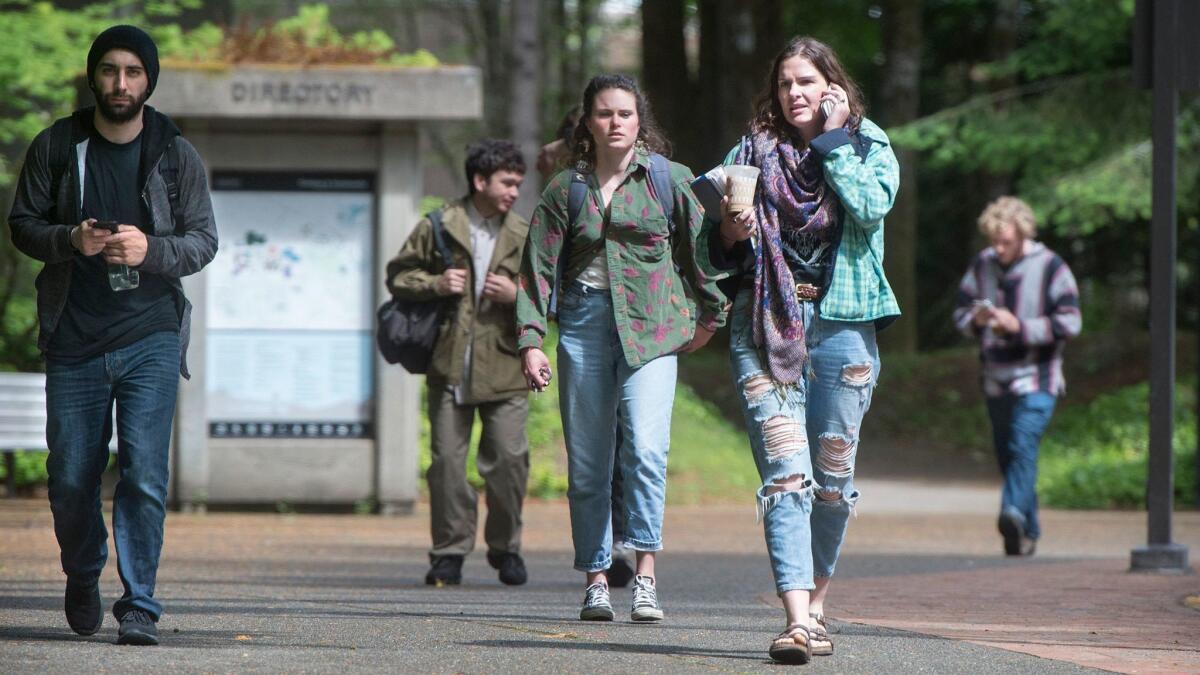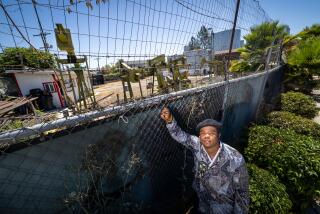Op-Ed: Advice for student protesters: Fly, don’t drive

A humble proposal for student activists as the new academic year gets underway: Fly, don’t drive.
Here’s what I mean. Following highly publicized plane crashes or hijackings, many people are tempted to drive rather than fly if they have the option. The impulse is irrational — you’re far more likely to die in a drive across town than on a cross-country plane ride — but understandable. We feel less fearful and more in control behind the wheel of a car.
That inclination, I believe, provides much of the answer to a question I’ve been asked by friends and colleagues about notorious incidents on college campuses over the last couple of years. At a time when climate change, increasing inequality and the current occupant of the White House are endangering the planet, why were Oberlin students going on about “culturally insensitive” sandwiches and Evergreen students about a professor who balked at calls for white staff and students to absent themselves from campus for a day?
If a student cares more about climate change and governmental malfeasance than what’s said on campus, shouldn’t she give precedence to those commitments?
The objection has merit. On almost any rational calculus, the time and outrage devoted to such kerfuffles could be put to better use. Meanwhile, events like those at Oberlin College and the Evergreen State College provide ready-made rationales for pundits to mock college activists.
But rational calculi aren’t the only kind that motivate humans. We have a deep-seated need to feel in control of our lives and surroundings, as heaps of studies have shown.
If a student has 10 hours to devote to protesting, spending them outside the dining hall or the college president’s office is more likely to produce a change in policy than the same investment of time protesting outside the offices of a corporation that contributes to climate change or an elected official who supports the oil and gas industry.
But if that student cares more about climate change and governmental malfeasance than what’s served or said on campus, shouldn’t she give precedence to those commitments?
I phrase that as a question rather than a statement because I meant what I said about this being a humble proposal. A former student activist who has worked for a few decades as a professor and university administrator, I learned long ago that young adults have good reason to discount the priorities and strategies their elders urge them to adopt. Our recommendations stem not only from noble goals, but — let’s be honest — from our desire for control. We’d like the next generation to continue what we and previous generations began, and we’d prefer they direct their upset elsewhere than at us.
My proposal sidesteps those impulses: It’s simply that students should examine their priorities. It leaves open where, how and toward what or whom student activists direct their actions. If a student concludes that the campus climate or college president is a better focal point for their activism this academic year than climate change or President Trump, so be it. There is a case to be made for the old adage “think globally, act locally.” Besides, students will have plenty of years post-graduation to tackle off-campus concerns.
To the extent that college activists are choosing their battles based on what feels most within their control, however, I respectfully suggest they reconsider.
Don’t drive because you’re afraid to fly.
Barry Glassner is the author of “The Culture of Fear,” a professor of sociology and former president of Lewis & Clark College.
Follow the Opinion section on Twitter @latimesopinion or Facebook
ALSO
Rescinding DACA would be the meanest of the Trump administration’s mean anti-immigrant actions
Get ready for the next round in the battle over the Vietnam War
More to Read
A cure for the common opinion
Get thought-provoking perspectives with our weekly newsletter.
You may occasionally receive promotional content from the Los Angeles Times.










